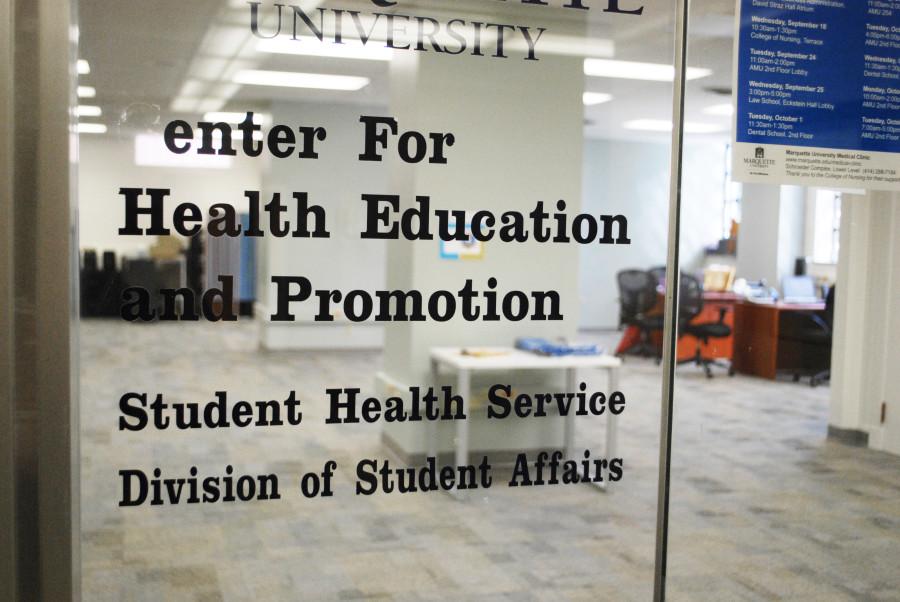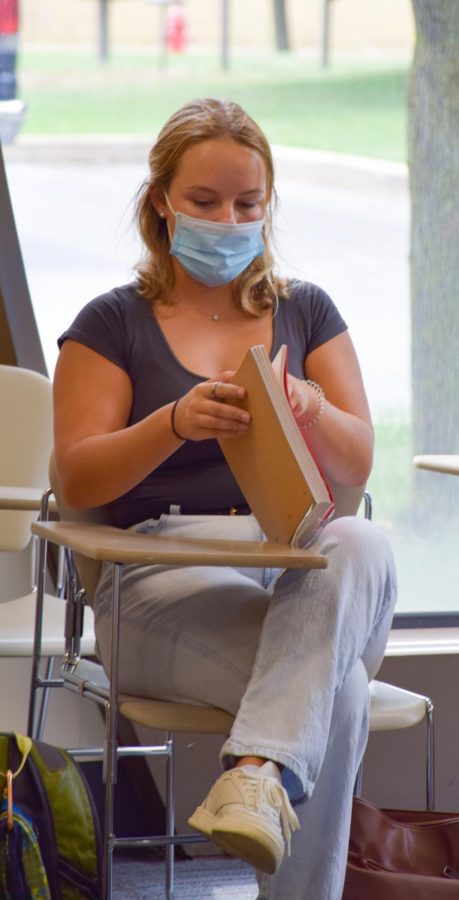A student at the University of Wisconsin-Madison died last Wednesday of meningitis, according to an April 11 article from the Milwaukee Journal Sentinel. Students on college campuses are at a slightly increased risk of contracting meningitis, due in part to the close living conditions in dormitories, according to the Centers for Disease Control and Prevention.
Meningitis has many symptoms including fever, vomiting, headaches and neck stiffness. Each case varies by individual, according to the Meningitis Research Foundation. The last confirmed case of meningitis at Marquette occurred in April 2011, when a student was hospitalized for a bacterial form of the illness.
Sarah Van Orman, executive director of University Health Services at the University of Wisconsin-Madison, said the student had gone straight to the hospital and so the university’s health care system had not provided medical care to the student. Now it is working on proactive education about meningitis and helping students who are possibly at risk of contracting it.
“We are generally notified by both the hospital and public health of Madison County when something like this happens, and then we work together to respond both to make sure we are taking care of any concerns as well as to get good health messages out to the community,” Van Orman said.
Van Orman said there are strict guidelines when it comes to treating meningitis. First, students must contact a public health authority. The system then has to determine who might have had contact with the student so medical professionals can administer the proper treatment.
“There are very good guidelines, and we work with our health department to implement those,” Van Orman said.
Van Orman said that any time someone contracts meningitis, there is always a large amount of concern because of all the attention it draws.
“Part of what we are trying to do is to get the people who we need to know about to come in and get treatment,” she said. “But we also want to be careful because we don’t want people to be concerned about their personal safety when they don’t need to be.”
Van Orman said one of the biggest concerns is making sure unaffected students aren’t overly worried, as the risk of actually contracting meningitis is slight. She said, however, that situations like this are an opportunity to educate people about the signs and causes of the infection.
“When you have a case like this, the only people we are concerned about are the people who have a risk of it, and this risk is very, very small,” Van Orman said. “It consists of the people who may have had the closest … contact, which consists of the people who may have shared saliva.”
Van Orman said the university’s first priority is alerting the people who have shared cups, glasses or cigarettes or have kissed an infected person. She said the university recommends that those affected should take a single dose of antibiotics.
“What students need to know in preventing meningitis is that this particular case doesn’t represent any particular group of them,” Van Orman said. “There are things you should do every day that help prevent disease, like making sure you’re up to date on vaccinations, including the meningitis vaccine, and keeping good respiratory hygiene, which means washing your hands not sharing cups and glasses and those sorts of things.”
Van Orman said the hardest part of identifying meningitis is noticing its symptoms, as the vaccine prevents many of the signs of the disease from appearing.
“The number of cases of meningitis has dropped quite a bit, but even with that vaccine it doesn’t prevent all cases,” Van Orman said.
Milena Swanson, a senior in the College of Communication, said she wasn’t scared of the way meningitis could be contracted on the surface, though the potential of coming in contact with another person’s saliva is much higher than anyone wants to think about.
“I am much more scared by the effects of meningitis and what it actually does to a person than the saliva that can lead to it,” Swanson said. “Given the fact that a case was so recently seen in Madison, I would still be considerably surprised (if) a case of meningitis would show up at Marquette.”
Swanson said that university standards, precautions and requirements for the vaccine prior to living on campus definitely puther at ease.










